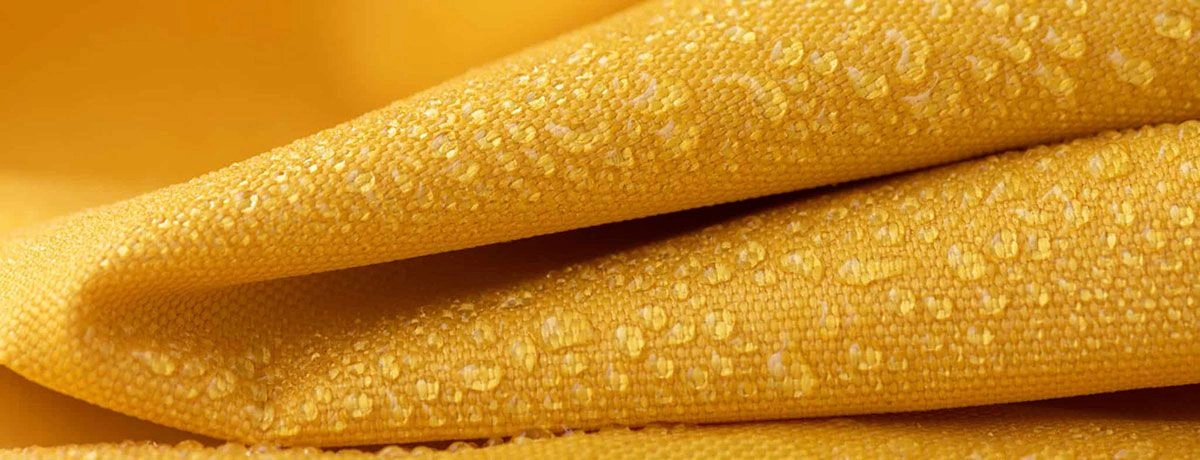100 Nylon Fabric – All You Need to Know

Nylon is the most versatile plastic fabric in the textile industry. Known for its durability, flexibility and lightweight, nylon is used in many industries from fashion to manufacturing. For fabric importers, textile buyers and fashion manufacturers understanding nylon fabric’s properties, types and uses will help you make informed decisions for your sourcing and production needs.
This guide covers all you need to know about nylon fabric, types, properties, uses and advantages and disadvantages.
What is Nylon Fabric?
Nylon is a synthetic fabric made from petrochemicals. Developed in the 1930s by DuPont, it was the first commercially produced synthetic fiber. It was popular for its strength and elasticity and was a substitute for natural fibers like silk. Today nylon fabric is used in many products, clothing, industrial materials, outdoor gear and is available in 100% nylon fabric and blended materials. PVC backed nylon fabrics are known for their durability and outdoor use, perfect for crafting and sewing projects around boats and homes.
Properties of Nylon Fabrics
Nylon fabric has the following properties:
-
Durability: One of the strongest synthetic fibers, resistant to wear and tear.
-
Elasticity: High recovery, perfect for stretchy garments and products.
-
Lightweight: Strength but lightweight, comfortable for clothing and other uses.
-
Moisture Resistance: Repels water and dries fast, perfect for outdoor and sportswear.
-
Abrasion Resistance: Can withstand high friction, industrial and outdoor use.
-
Soft Texture: Nylon fabric can be made to mimic the softness of natural fibers, perfect for clothing.
-
Color Retention: It holds dye well, colors will not fade over time.
-
Tear Resistant: Nylon fabric, especially Cordura®-style P-600 is tear resistant and can be used for banners and table coverings.
-
Waterproof: Nylon fabric is waterproof, perfect for outdoor use like backpacks, outdoor covers and camping gear.
What are the different types of Nylon Materials?
Nylon is not a one size fits all material. It comes in different types, each with its own properties for specific use. Some nylon blends have spandex for added stretch and comfort. Here are the most common types:
Nylon 6,6
This is the most common type of nylon fabric, known for its good wear resistance and high melting point. It is used in applications that require strength and durability like machinery components and high performance industrial fabrics.
Nylon 6
Nylon 6 is softer and more elastic than Nylon 6,6. It has good tensile strength and is used in textiles, manufacturing and automotive industry.
Nylon 6,10
Known for its dimensional stability, Nylon 6,10 is used in applications that require low water absorption like bristles and high precision components.
Nylon 4,6
This has better thermal resistance, perfect for applications that are exposed to high heat.
Nylon 12
Nylon 12 is lightweight, flexible and temperature resistant, perfect for tubing, coatings and specialized industrial use.
What is Nylon Fabric made of?
Nylon is a polymer, which means it is made up of long chains of repeating molecules. The production process involves the polymerization of petrochemical compounds like adipic acid and hexamethylene diamine. These compounds are melted and spun into fibers, then cooled, stretched and woven into fabric.
The finished product can be 100% nylon fabric or blends of nylon with other fibers for added functionality.
What is Nylon Fabric used for?
Nylon’s versatility can be used in many products. Here are its most common uses:
Clothing and Apparel
Nylon’s lightweight and elastic properties make it perfect for garments like activewear, hosiery andouterwear. Its durability makes it popular in outdoor clothing. Nylon is used in activewear, athletic shirts and pants due to its durability and quick dry properties.
Industrial Use
With its good strength and abrasion resistance, nylon is used in industrial applications like conveyor belts, ropes and fishnets.
Outdoor Gear
Nylon’s moisture resistance and durability makes it a popular material for tents, backpacks, sleeping bags and other outdoor equipment.
Upholstery and Home Furnishings
Nylon is used for upholstery, curtains and carpets due to its wear resistance and ability to hold vibrant colors.
Luggage and Bags
Nylon’s durable and lightweight nature makes it perfect for luggage, duffel bags and everyday totes.
Advantages and Disadvantages of Nylon Fabrics
Before you source or use nylon fabric, you must consider its pros and cons.
Advantages of Nylon Fabric
-
Durability: Nylon fabric is wear resistant.
-
Lightweight: Despite being strong, nylon is very light.
-
Elasticity: Its stretch and recovery properties is perfect for activewear and form fitting garments.
-
Water Resistance: Nylon repels water.
-
Color Retention: It retains colors even after long use.
Disadvantages of Nylon Fabric
-
Non-Biodegradable: Nylon is made from petrochemicals and doesn’t decompose easily, environmental concerns.
-
Melting Risk: Exposure to high heat can melt or burn nylon.
-
Static Build-Up: Nylon generates static electricity, uncomfortable in some garments.
-
Skin Irritation: Some people may experience discomfort or sensitivity when wearing nylon next to skin.
-
Moisture Absorption: While it repels water, nylon fibers can absorb moisture and retain odor.
-
Pilling: Repeated use or friction can cause the fabric to pill.
When to Use Nylon Fabric
For fabric importers, textile buyers and fashion manufacturers, sourcing nylon fabric depends on your requirements. If you’re looking for lightweight performance fabric or bristle resistant fabric, you need to consider the type of nylon and its compatibility with your end product. Nylon fabric is sold by the yard, so you can buy specific length for your project.
Conclusion on Nylon Fabric
Nylon fabric has been a game changer in the textile industry since it was invented, it’s durable, elastic and versatile. Whether you’re making apparel, manufacturing industrial products or sourcing material for outdoor gear, nylon is the best option.
Check out 100% nylon material suppliers and manufacturers who can meet your specific needs. Now that you know the types, properties and uses of nylon fabric, you can make smart decisions for your business.
